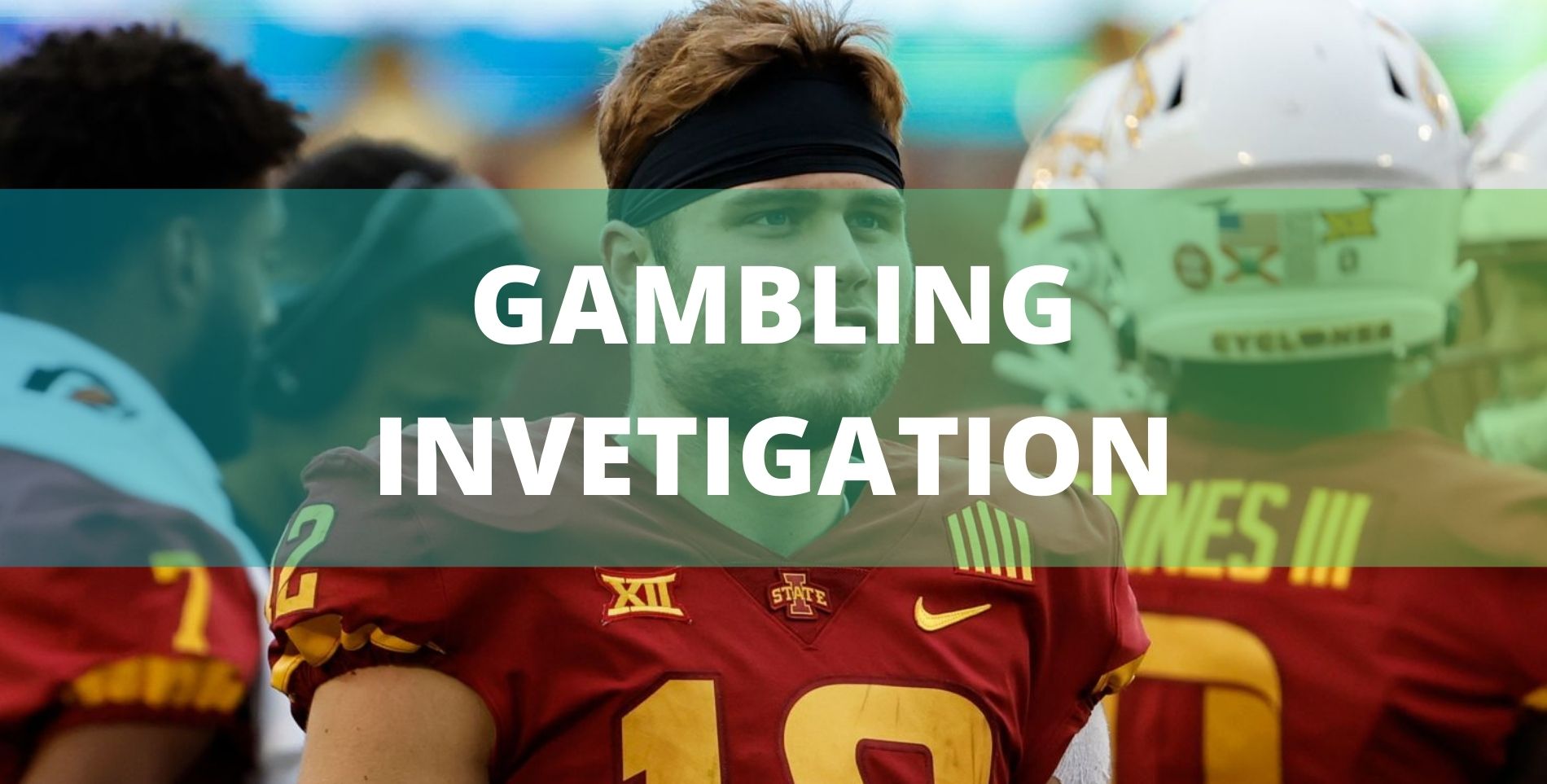News
Several Athletes, Including Iowa State Starting Quarterback, Charged in Gambling Investigation

A recent gambling investigation has rocked the world of college sports, implicating several athletes, including Hunter Dekkers, the commencing quarterback for Iowa State University.
The investigation revolves around likely student-athlete gambling at the University of Iowa and Iowa State University, raising serious concerns about the integrity of collegiate sports and its impact on the careers of these young athletes.
Hunter Dekkers, a key player in the Iowa State football team, is facing an allegation of meddling with records, as the state alleges he attempted to conceal his self-identity while gambling on sports affairs.
The criminal complaint claims that bets were placed from Dekkers’ phone utilizing a DraftKings account registered under a family member’s name. Despite the charges, Dekkers has staunchly denied any wrongdoing.
Another player caught in the investigation is Eyioma Uwazurike, a retired Iowa State football thespian who currently plays as a defensive lineman for the Denver Broncos in the NFL.
Uwazurike was apprehended for meddling with documents after prosecutors alleged that he employed somebody else’s moniker to place approximately 800 sports bets on FanDuel, totaling over $21,000.
Among these bets were wagers placed on two Iowa State football games in which Uwazurike participated during the 2021 season. The NFL has already suspended Uwazurike indefinitely for gambling on league games in 2022.
In addition to Dekkers and Uwazurike, several other athletes have been charged in connection with the investigation. Paniro Johnson, a sophomore wrestler at Iowa State who won a Big 12 Conference wrestling title last season, is estimated to have made approximately 1,283 sports bets summing over $45,000, including 25 wagers on Iowa State University sports events.
Dodge Sauser, a redshirt sophomore football player for Iowa State, is accused of placing roughly 113 sports bets summing over $3,000, with 12 of those wagers concerning Iowa State football games from the previous season.
The allegations have raised concerns about the athletes’ eligibility and potential consequences for their collegiate careers.
According to the National Collegiate Athletics Association (NCAA) guidelines, athletes who pledge actions to impact game outcomes or furnish data to individuals implicated in sports betting exercises may encounter permanent loss of eligibility in every sport. This guideline also extends to student-athletes who gamble on their self-games or on different sports at their own academies.
Dekkers’ attorney, Mark Weinhardt, has vehemently defended his client, asserting that the accusation obtained against him does not involve the situation and tries to outlaw a common practice of sharing online accounts. Despite maintaining his innocence, Dekkers has chosen to step away from the Iowa State football team to focus on preparing his defense.
The gravity of the situation has not escaped the attention of Iowa State University’s athletics department and the NCAA.
The university has been working closely with the involved student-athletes in coordination with the NCAA to determine their future eligibility for intercollegiate athletics competitions. In accordance with compliance protocols, Iowa State refrains from commenting on the student-athletes individual circumstances or eligibility status.
This latest investigation highlights the growing concern over student-athlete gambling and its potential implications for collegiate sports. In May, Iowa’s university system announced that 26 current student-athletes from both the University of Iowa and Iowa State University were under investigation for allegedly violating NCAA rules by gambling on sporting events.
The charges have sparked a broader discussion on the prevalence of gambling in college sports and its potential impact on the careers and futures of these young athletes.

